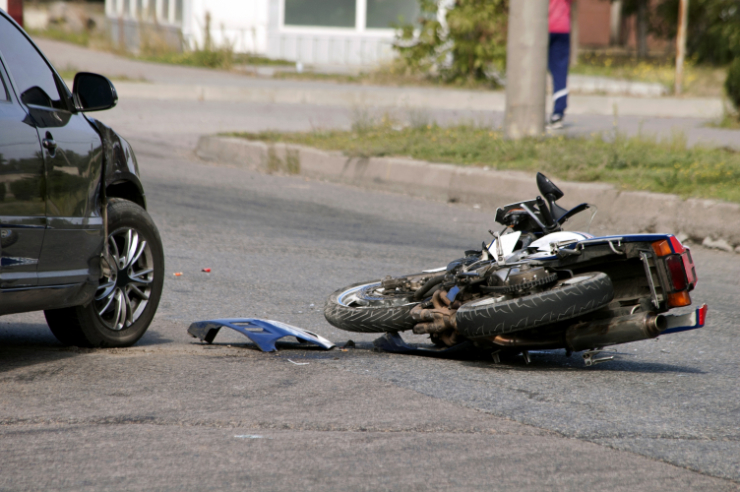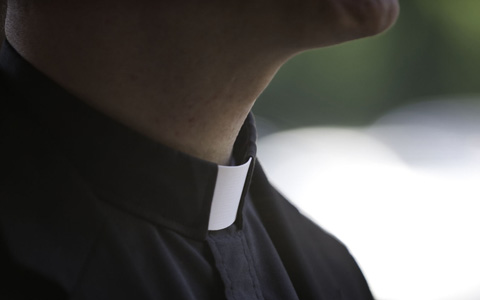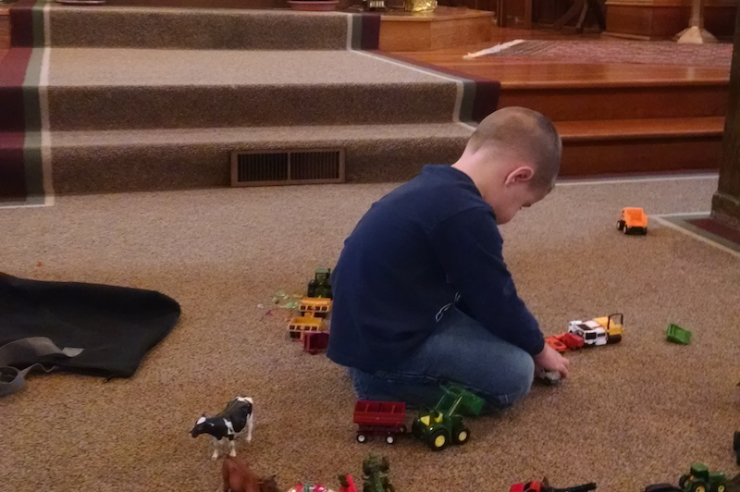
It was 2003, and I was only months away from graduating college. Distracted by the thrill of finally entering adult life, I wasn’t perceptive as my then-boyfriend and I whirred past a serious accident on a busy highway at night. Instantly, we swerved across four lanes of Friday-night traffic and blocked the road.
We were the first on scene. Ryan called 9-1-1 while I surveyed the surroundings. I noticed a crumpled motorcycle about 100 feet away and two bodies – one male, one female – scattered in different areas of the road. The man, who we later learned was the drunk husband of the woman, survived. But as I approached the woman, it was clear she wasn’t going to make it. I could see her chest heaving, so I knew she was still breathing, but the wounds on her body appeared too severe for survival.
As I suspected, the emergency hospital helicopter arrived on site and rushed her to the local triage center. But before they took her body away, I was compelled—compelled—to pray a Divine Mercy chaplet for her.
Before I continue, it’s important to note that this time frame was several years before the Divine Mercy message became well-known. I had learned of St. Faustina by reading excerpts from a copy of her Diary that belonged to my mom, and I knew this devotion was critical in our era ravaged with hopelessness and sin.
I didn’t know this woman, but I knew I simply had to pray for her soul. So I did—silently, by the road as passersby gathered out of curiosity.
About a week later was All Saints, then All Souls Day. I learned from Ryan that the couple we’d witnessed in that accident were actually parents of his younger brother’s best friend. The mom died, not surprisingly, but the father survived. Ryan and I could be expecting a subpoena for court later in the year, mainly because both the husband driving the motorcycle was impaired, as was the driver who T-boned them.
When I learned the woman’s name that day, I wrote it in the Book of Life by the altar before Mass. The image of that night weighed heavily on my heart, and it seemed fitting to remember her soul after such a tragedy.
What happened next, though, was a total surprise. After Communion, I saw an image of this woman in my mind. She came to me, smiling and radiant. All she said was, “Thank you for praying for me.” And I instantly knew the power of the Divine Mercy chaplet. From that point on, I prayed it often for the holy souls in Purgatory and do to this day.
That incident significantly impacted the way I view prayer. Before, I had prayed without full confidence in God’s mercy. But after, I couldn’t help but know with certitude that we cannot contain the mercy of God in our finite way of thinking. Somehow, God’s providence placed me on the scene of that accident – one in which this woman, whom I still don’t know anything about, needed prayer as she lay dying.
We cannot predict the ways in which the Holy Spirit will convict our hearts to pray. We may not know why we’re strongly called to intercede for a particular person or situation. But if we are receptive and respond with obedience, grace flows in the most unexpected places.
I think I found healing the same day this woman did. Divine mercy is surely a balm for every hurting heart.
Text (c) Jeannie Ewing 2018, all rights reserved.















